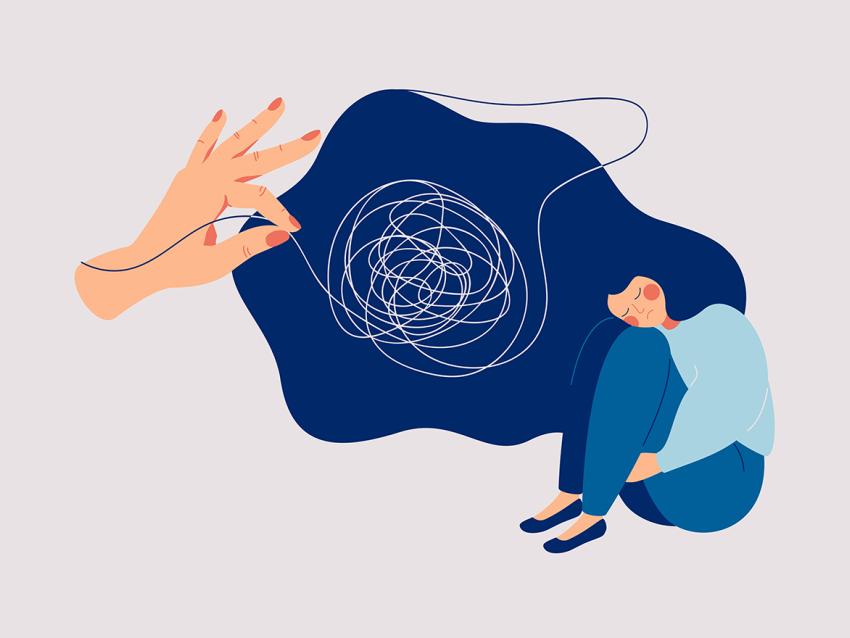
Tips to Navigate Seasonal Depression
The University of Kentucky Public Relations and Strategic Communications Office provides a weekly health column available for use and reprint by news media. This week's column is by Lee Anne Walmsley, PhD, EdS, MSN, RN, an assistant professor in UK’s College of Nursing and research team member of Behavioral Health Wellness Environments for Living and Learning (BH WELL). She serves as the chair of the Work-Life and Student Wellness Council.
December is Seasonal Depression Awareness Month. Seasonal Affective Disorder (SAD) is characterized by recurring depression in the late fall and winter months, in contrast with normal mood habits the rest of the year. You may notice your own mood fluctuate negatively as cold weather ramps up and daylight hours shorten. SAD is estimated to affect 20 million Americans, with women being 4 times more likely to be affected than men. SAD is also more common among 18- to 30-year-olds.
Symptoms of SAD include gaining weight and sleeping more. Some also experience decreased sexual interest, lethargy, hopelessness, suicidal thoughts, decreased socialization and lack of interest in activities once enjoyed.
Like classic depression, the best treatment is a combination of antidepressant medication, cognitive behavioral therapy, and exercise. SAD can also be treated with light therapy, daily exposure to artificial high-intensity sunlight.
A little self-care can turn your SAD into GLAD:
G Get as much natural sunlight as you can or purchase an affordable bank of lights
L Laugh and practice gratitude daily for increased wellness and happiness
A Activity time daily for 20 minutes five times a week
D Drink 64 ounces of water daily and eat a nutritious diet
In addition, try the following interventions:
- Practice meditation and relaxation techniques
- Spend time in the sun when possible (with sunscreen)
- Try music or art therapy
- Seek professional help for behavioral therapy and/or medications
Listen to NPR’s Life Kit episode on SAD here.
For more information and treatment options for SAD, visit https://www.nimh.nih.gov/health/publications/seasonal-affective-disorder
If you or someone you know is having suicidal thoughts, please visit suicide prevention lifeline or call 1-800-273-8255.
The Behavioral Health Wellness Environments for Living and Learning (BH WELL) research team to promote behavioral health and wellness among individuals facing behavioral health challenges. For more information, visit www.uky.edu/bhwell.
